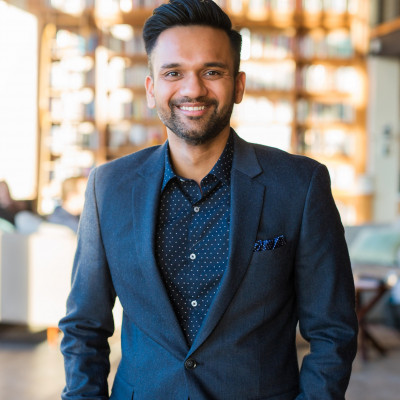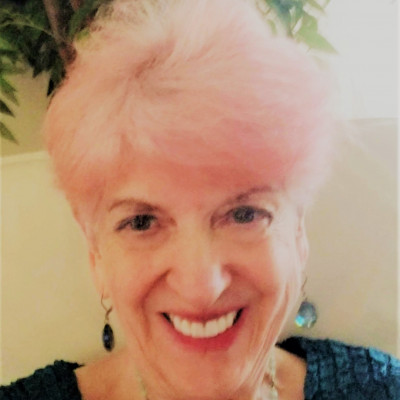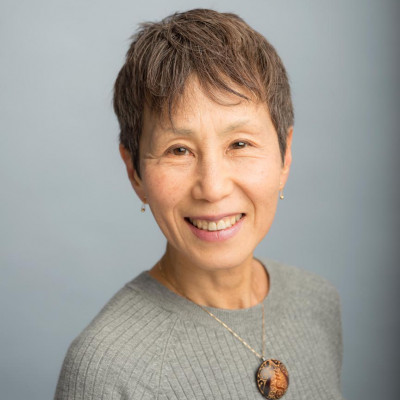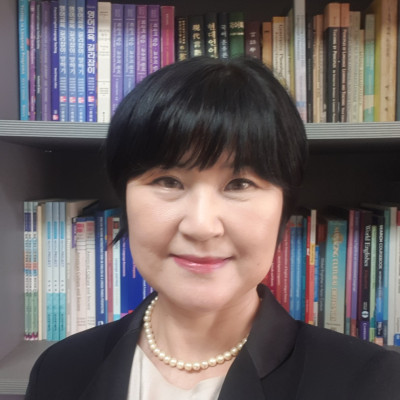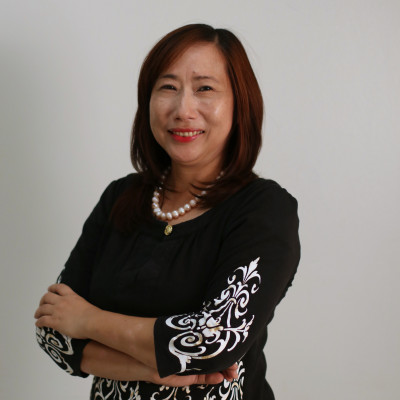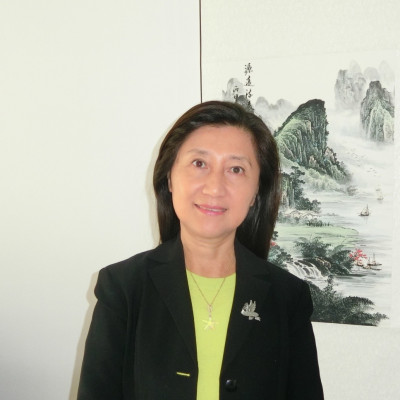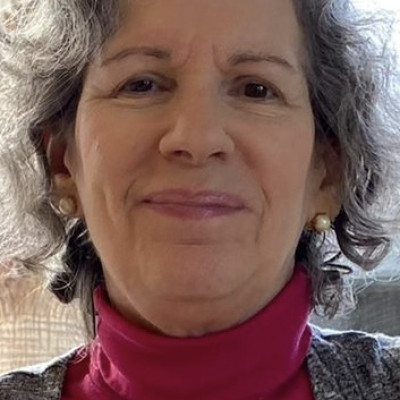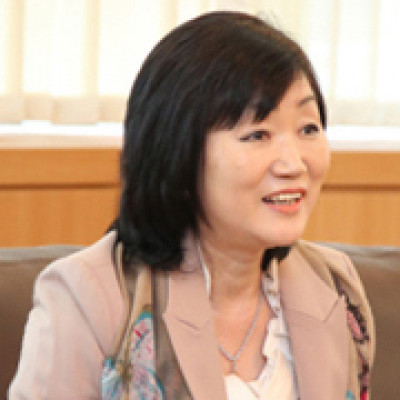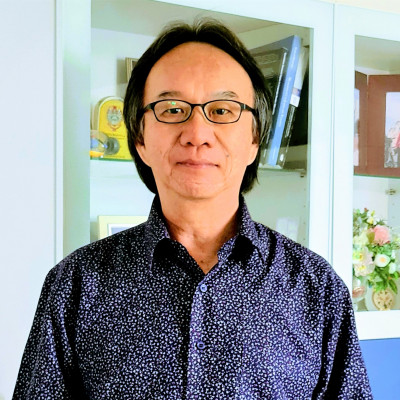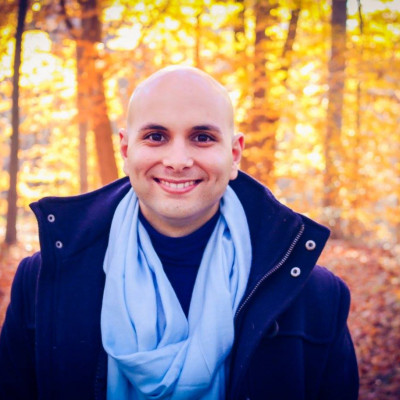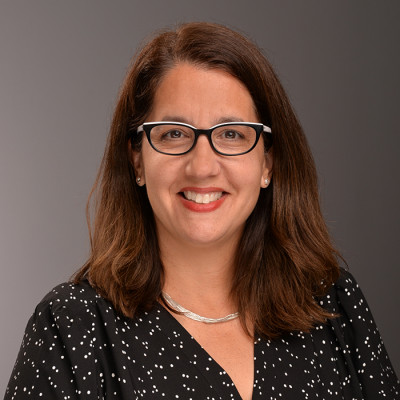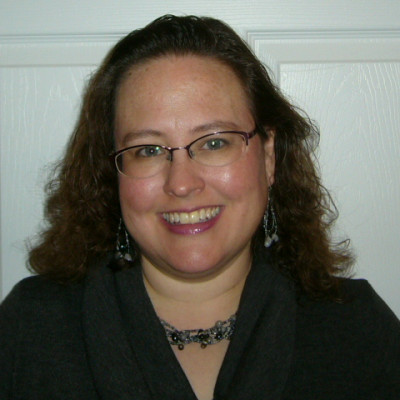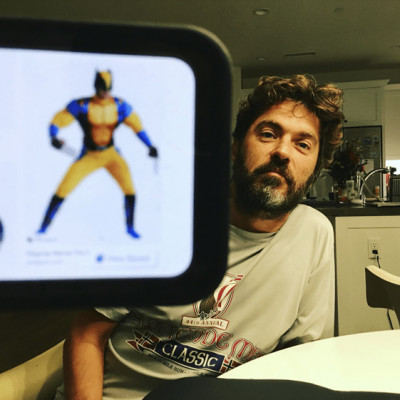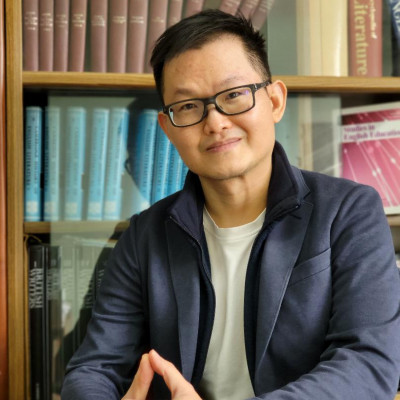Sessions / Featured/Invited
Building A Better World by Breaking Bias: Thoughts for Educators #3011
In this interactive talk, Anu will help participants discern the difference between conscious and unconscious bias, what we would save financially and socially by breaking bias, and the five PRISM tools we can use to break bias. Participants will understand the social and financial costs of unconscious bias in education, practice PRISM tools (BE MORE with Anu’s unique, mindfulness-based toolkit for breaking bias), and develop curiosity and a solutions orientation toward breaking bias. Learn more here: https://koreatesol.org/content/pre-conference-special-plenary
How to Create Engaging Lessons in Virtual Contexts #3015
Workshop Session
The virtual world has come to stay. Usually engagement is one of the challenges educators face in the virtual setting, plus access to tools depending on the varied contexts. This session will explore different virtual tools that can be used to promote engagement during professional development. Participants will leave with ideas on a variety of tools and activities that can be easily adapted to any teaching context.
Teaching Language, Teaching Peace: Bridges to a Better World #3016
Featured Session
Teaching language and teaching peace are linked because both are bridges to a better world. What do people want most in Daegu, Delhi, and Denver or in Busan, Berlin, and Buenos Aires? What is the greatest hope in Gwangju, Guatemala City, and Gaza or in Mokpo, Manchester, and Mumbai? All over the world, we need and hope for peace. Rebecca Oxford defines peace as harmony and explains that it has at least three broad purposes: (a) to calm our minds and hearts, and give us a sense of well-being (inner peace, or peace with oneself); (b) to develop friendship, loving appreciation, and social justice in relationships with individuals, groups, countries, and cultures (social peace); and (c) to care for and enjoy Mother Nature’s wildlife, water, land, sky, and planets, and realize that nature supports our very lives (ecological peace). In short, peace involves caring for ourselves, others, and our environment.
How can we do this? Martin Luther King, Jr. said that peace requires working productively to harmonize conflicting perspectives, while Elise Boulding stated that peace demands imagination and love each day. Purposes and methods of peace are part of Oxford’s Language of Peace Approach (LPA). The LPA helps teachers integrate peace activities into teaching EFL or other languages, resulting in students’ greater language practice and competence, increased interest in peace, and stronger peacebuilding abilities. Teachers can benefit by developing their own peacebuilding skills while teaching students! Rebecca illustrates ways to weave inner peace, social peace, and ecological peace into language education, thus creating bridges to a better world. For instance, inner peace can be fostered by affirmations, mindfulness, deep breathing, and listening to music. Social peace depends, in part, on basic verbal communication strategies, nonverbal communication tools, and a simple, nonviolent communication process. Ecological peace is aided by forgetting responsibilities for a moment, walking outside, noticing colors of nature through the Rainbow Walk, and writing about how nature takes care of us and how we can take care of nature (Oxford, Olivero, Harrison, and Gregersen, 2021). The session closes with words from and pictures of important peace role models from many cultures – people who have built bridges to a better world through peace and through language. This session also offers insights to people who are not teaching but are seeking ways to bring peace more fully into their hearts, their relationships, and the environment. All of us can be peacebuilders.
The 10 Myths of English Language Teaching and Learning #3013
Featured Speaker (Second Session)
This workshop introduces our new book (영어교육에 대한 10가지 환상, 10 Myths of English Language Teaching and Learning; 2021, 글로벌콘텐츠/Global Contents), which is a Korean translation from the Japanese version with annotations that address similar issues in South Korean contexts. The primary purpose of this book is to question common beliefs about English language teaching and learning in Japan and South Korea. These briefs have been pointed out as problematic by scholars in applied linguistics in the West during the last 30 years or more, but they have continued to be supported to date by teachers, parents, policymakers, and other ordinary people outside of academia. Many of the ideas presented in the book invite readers to rethink taken-for-granted ideas about what the best approach to teaching and learning English is. The audience will be invited to gain renewed knowledge and ways of thinking that would contribute to linguistic and human diversity and equity.
The Power of Collaboration: Building Networks, Connecting Educators #3014
Featured Session
Collaboration is at the core of professional growth. As we engage in collaboration, we are promoting negotiation of personal and professional goals, and embarking on the journey itself. Collaboration can include sharing, exploring, and supporting; this results in creating new learning experiences for educators that translate into the best experience in the classroom. This presentation will describe how collaboration contributes to build networks and bridges of professional development, how it serves the purpose of creating engaging lessons, promoting collaborative research, and leading projects as well as building trust. It will provide examples of collaboration among teachers for teaching and professional development. Participants will leave with a set of examples and ideas that can easily be adapted to their own contexts, considering their own realities.
Language and Literacy in Online Games and Esports #3019
Featured Session
Video games have emerged as the leading entertainment media among youth, garnering more daily attention and time on task from middle schoolers and teens than homework. Due to their time demands, games are often positioned in competition with literacy and learning rather than part of it, but what if games were instead a hook to get kids reading in situated, interest-driven ways? In this presentation, I review more than a decade of empirical work on the relationship between video games play and literacy. From fan fiction writing to reading textbooks as a way to “cheat” the system, games recruit print text in multiple ways as a natural everyday part of digital play. Here, I review the quantity and quality of reading in relation to games, how writing is positioned online as another form of gameplay, and the role that interpersonal communication plays in successful esports competitions.
Enacting Antiracism in Teaching English #3012
Featured Session
Antiracism in English language teaching is part of the engagement with social justice, a set of principles for establishing individual, societal, and environmental wellbeing. Yet, an explicit discussion of race, racism, and antiracism is often avoided, leaving these concepts inadequately understood. This presentation will bring these concepts to light and invite the audience to critically engage in race-aware discourse and pedagogy. To do so, I will outline key concepts, including the concept of race, different types of racism, intersectionality, and the relationship between race and language. Especially, native-speakerism needs to be problematized in relation to the supremacy of Whiteness as perpetuating raciolinguistic ideologies at interpersonal, systemic, and epistemological dimensions. Becoming aware of these issues will encourage teachers to recognize how race is reflected in teaching materials, pedagogical practices, and institutional structures, and to enact antiracism within a broader engagement with social justice.
ELT Professionals for a Better World: Lives of Leadership and Service #3116
Invited Panel
In this 50-minute panel discussion, five esteemed female leaders in ELT, all nearing the end of their formal careers in education, will reflect on their respective paths. They’ll share stories of their growth as educators and leaders; look back on the decisions, motivations, and inspirations that shaped them; consider their own impact, including how their life’s work has contributed to improving the world; and offer thoughts, insights, and suggestions for future generations of leaders seeking to make their own mark in education–and on the world.
Global Citizenship and Capacity-Building for Peace #3105
Featured Session
Global Citizenship Education (GCED) aims to be transformative, equipping learners of all ages with the values, knowledge, and skills that reflect and instill respect for human rights, social justice, diversity, gender equality, and environmental sustainability. GCED is competence/capacity-oriented critical learning. It promotes respect for differences and diversity, being socially connected, transforming relationships, critical reflections on identities, skills for critical inquiry and analysis, and questions into underlying assumptions and power dynamics. Learning for peace is to acquire sensitivity of peace; violence and conflict; and capacities for conflict prevention, peacemaking, and peacebuilding.
Practical Tips to Grow Your Teaching, Research, and Service Impact #3103
Invited Speaker
Work in academia is increasingly assessed in terms of whether and to what extent it has important impact on three areas: teaching, research, and service. Our teaching is considered impactful when, for example, it results in deep and durable learning and helps students apply what they have learned in their future work. On the research front, our research is considered to have impact when, for example, it provides new insights and perspectives, and when our research findings find application in and outside the classroom. In the same vein, our service is impactful when, for example, we reach out to teachers and support them in their professional development efforts through in-service workshops. In this presentation, I first define what impact is and what it means for teaching and research faculty. I will then offer tips and suggestions on how they can increase the impact of their work and make their teaching research and service impacts more visible at the institutional, national, and international levels.
A Research-Based, Practical Exploration of Language Teacher Wellbeing #3010
Featured Session
Although language teacher wellbeing is multidimensional, its elements are dynamically interconnected with all being necessary for thriving personally and professionally. This presentation will explore finding balance in our minds, bodies, emotions, motivations, relationships and the workplace in the present and the future. Research-based and practical, the concepts and activities presented will equip teachers to make choices from a variety of mediations that are most aligned with their own individual circumstances at home and in the classroom.
Preparing English Language Teachers for Social-Emotional Learning #3022
Invited Speakers
Social-emotional learning (SEL) is a teaching approach that focuses on the core affective skills (i.e., self-awareness, self-management, social awareness, relationship skills, and responsible decision-making) necessary for individuals to be healthy, successful, and responsible. SEL has gained much attention in the field of education in the last 20 years; however, it is only now that English language teaching (ELT) is beginning to embrace it. In this presentation, we propose SEL as a vital practice in ELT. To do this, we first introduce and define SEL, situating it within the ELT field. We then share findings describing the positive effects of SEL in ELT classrooms for both teachers and students at different grade levels. We end the presentation by providing detailed examples of how to incorporate SEL in K–12, adult, and higher education/teacher preparation classrooms.
Exciting EFL-Peace Activities for a Better World: Strengthening EFL Competence and Fostering Peace #3017
Workshop Session
In this time of COVID, strife, and confusion, it sometimes seems like the world is shattering. What the world needs now is peace. The workshop leader, Rebecca Oxford, is a peace author, language teacher educator, and former teacher of foreign languages and her home language. The workshop begins with a short process of humor and peace. Rebecca then reminds participants of three kinds of peace: (a) peace of mind and heart (inner peace, or peace with oneself); (b) peace with other individuals, groups, countries, and cultures (social peace, or peace with others); and (c) peace with Mother Earth (ecological peace, or peace with nature).
Following this, brief activities from at least two of the three kinds of peace will be presented, with workshop participants involved. The group will discuss what they saw and how language and peace worked together in these activities. Next, Rebecca shows how to adapt rather easily part of a textbook chapter to incorporate peacebuilding activities. If you are an EFL teacher, the workshop will show how you can easily integrate exciting, motivating EFL peace activities into your regular teaching without necessarily changing the curriculum in any major way. Weaving peace activities into the language class gives students more language practice, more motivation for communicating, and fresh concepts about developing “peace with a purpose.” If you are not teaching a language but are a teacher educator, supervisor, curriculum developer, administrator, graduate student, or parent, you can participate equally in the workshop from your own perspective. Workshop participants will receive free material: descriptions of many peace activities, some with photos; a list of relevant resources; and contact information for people who would be willing to serve as mentors or guides for you. Come to our peacebuilding workshop for a taste of joy, peace, and new ideas!
Cultivating Connections in Our Classrooms and Communities #3021
Invited Session
Humans are social beings, yet many of our interactions with others are superficial and transactional in nature. Research across many disciplines shows that it is our relationships that sustain us and make our lives meaningful. In the field of education, strong relationships improve learning outcomes, support learner persistence, and reduce teachers’ feelings of burnout. This session reviews the qualities of positive relationships and ties together the different lines of research that converge on the essential role of relationships in the teaching and learning process. Participants will learn pedagogical practices and social strategies to foster relationships among students, between teachers and students, with residents of the local community, and with colleagues in our profession, whether those encounters take place face to face or virtually.
Learning Language Through Games #3018
Featured Session
Much attention has been made about how games can improve education and learning. With all of the attention on 3D games, we often miss opportunities to use lower impact technologies. Language in particular can be facilitated by role-playing games. This session compares the design of several games – some on mobile devices, some on computers, and some face-to-face – to suggest new models of learning through games. Participants will gain a better understanding of the key issues in designing learning experiences with games, including specific design features and techniques they can use.
Applying Critical Hope in Research and the Classroom #3009
The purpose of conversation is to explore the impact of hope in the context of research and the classroom. Dr. Martin shows how mixed methods and the Speaking for Ourselves Action Research (SOAR) approach is applied. Her conceptual model applies concepts of hope, specifically critical hope (Freire, 1994; Duncan-Andrade, 2009; Hooks, 2003). This concept is a place where we can have meaningful dialogues that confront our own bias and complicities, and together find solutions that are just, hopeful, and local. By integrating art-based techniques, Dr. Martin shows how hope can play an integral role in research and the classroom itself. She will also share different voices from the field that have played a significant role in educating her own hope. It is her belief that when communities produce their own knowledge, they can drive public policies to support their own creative and meaningful solutions.
The Science of Happiness (Positive Psychology) in Your Classes and Your Life #3102
Invited Speaker
Positive psychology – some people call it “The Science of Happiness” – is the study of positive emotion – the things that make life worth living. This workshop will explore ways we can use positive psychology activities in our English classes. There are many reasons to do this, not the least of which is this: happy students work harder and learn more. We’ll explore some basic positive psychology activities and principles, things we can use in our teaching and in our own lives. These ideas let us teach English in ways that are far deeper, more meaningful and memorable than the typical textbook fare. We will look at ways to “savor” the good things in our lives. We’ll also look at Time Confetti – the idea that our free time too often seems to be broken into tiny bits, each too short to get anything worthwhile done. But if we are aware of the idea, we can be ready to make good use of the time. All activities will be based on positive psychology research. Online handouts, resources, and research links will be provided so you can use the ideas in your classes…and in your life.
Teaching and Researching for an Inclusive World: Ecojustice, Personal Power, and Changemaking #3008
Featured Session
An inclusive world emphasizes acceptance, respect, and appreciation of diversity. In this talk, I present the case for action by language educators and researchers to build an inclusive world. The first part of the talk discusses the powerful role that educators and researchers can play in changing mindsets, bringing about practical action, and transforming research and teaching practices. This discussion takes place through an exploration of the notions of ecojustice, personal power, and changemaking. The second part of the talk considers a number of challenges in promoting and enacting inclusion based on ecojustice considerations. I shall suggest that while it is often thought to be impossible to change large-scale educational and social practices, it is always possible, though admittedly not easy, to change our individual behaviors. It is at this personal level that educators and researchers, I argue, can create meaningful and impactful changes, changes that can encourage and inspire students and colleagues to take personal and group action that correspondingly contributes to institutional and systemic transformations. All this is for a more sustainable, more just world for the billions of fellow humans facing poverty and discrimination in different arenas of daily life, and by extension, for our fellow animals and our Mother Nature as a whole. There is a lot of darkness in this world, as Jane Goodall (2021) reminded us recently, “but our actions create the light.” Some examples based on personal experience (of action, not darkness!) are provided, and the relevance of this experience to the points raised is discussed.
It is within this broad frame that I wish to consider the theme of the conference: Teaching for a Better World.
Transformative Pedagogies for Peace Education #3106
Second Session
Transforming pedagogies in peace education will bring about a surprising transformation of learners and facilitators together. Learning in which the stories and experiences of the participants’ lives are central will create truly participatory processes. Mutual learning through and beyond dialogues, exchanging what body and mind promptly capture and convey will create a dialogical, mutual learning. Creating step-by-step "aha!" moments through theatrical, musical, drawing, mime, and other types of activities that arouse all six senses will transform education into artistic and cultural representations of the learners’ lives. Creating and testing together new things and thoughts, acts and interpretations, with question-posing and detail-observing will form a critical way of learning. The pedagogy of estranging involves drawing distance with the familiar, inviting and facing the unfamiliar, to raise and respond to deep questions about oneself and the surrounding world.
TEFL, Culture, and Environment: From Analysis of TEFL Textbooks to Inclusive Pedagogy #3020
Featured Session
This talk analyses TEFL textbooks with environmental themes that were written in the UK and US for use in Japanese universities. The shallow environmentalism of the textbooks, which treats the natural world as a resource and fails to address consumerism, is contrasted with the deep ecological wisdom embedded in traditional Japanese culture. The talk concludes with a discussion of how TEFL teachers can inspire students to draw from their traditional culture and express its ecological wisdom in English rather than just being expected to absorb and repeat western environmental perspectives.
